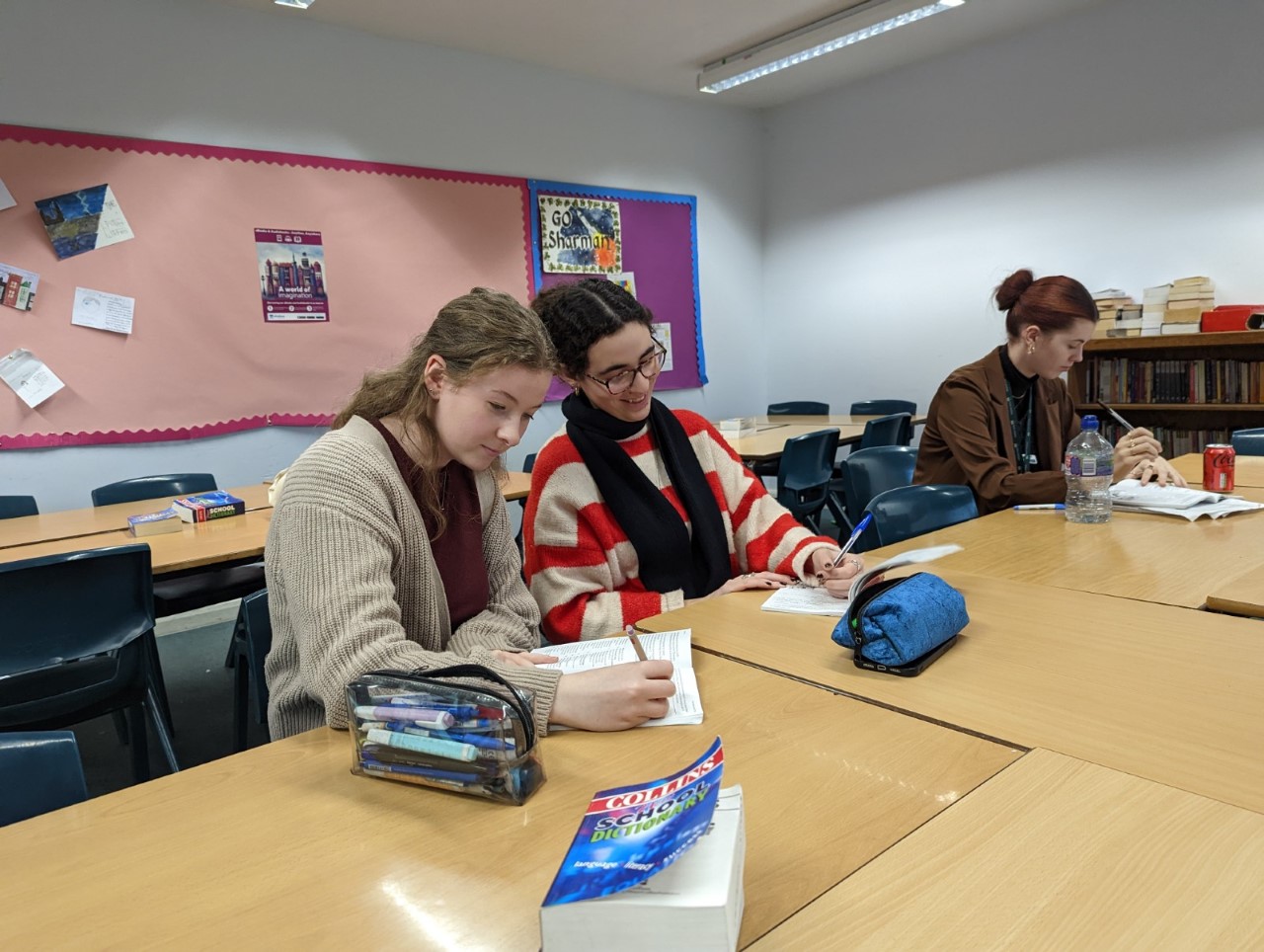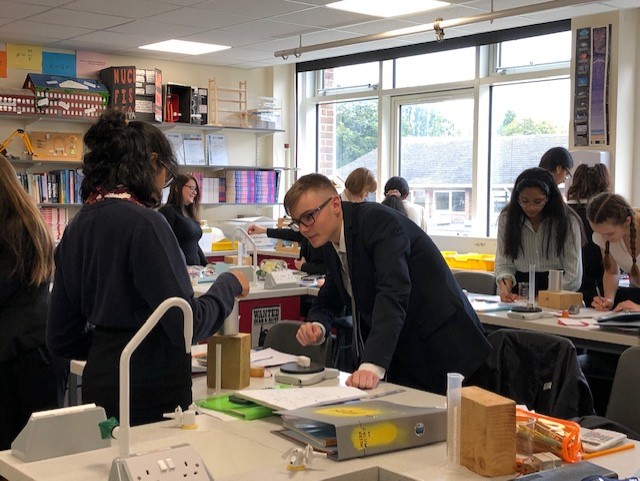Chemistry
Watch our video
what our students say
I chose to study chemistry because it was my favourite subject at school. One of the things I like best about it is you begin to understand all of the reactions around you. This subject has enabled me to think more logically and encouraged my passion for chemistry.
Billie Shearman
Exam Board: OCR
The Course
Module 1 - Development of Practical Skills in Chemistry
Skills of planning, implementing, analysis and evaluation.
Module 2 – Foundations in Chemistry
Atoms, compounds, molecules and equations; amount of substance; acid-base and redox reactions; electrons, bonding and structure.
Module 3 – Periodic Table and Energy
The Periodic Table and periodicity; Group 2 and the halogens; qualitative analysis; enthalpy changes; reaction rates and equilibrium (qualitative).
Module 4 – Core Organic Chemistry
Basic concepts; hydrocarbons; alcohols and haloalkanes; organic synthesis; analytical techniques (IR and MS)
Module 5 – Physical Chemistry and Transition Elements
Reaction rates and equilibrium (quantitative); pH and buffers; enthalpy, entropy and free energy; redox and electrode potentials; transition elements.
Module 6 – Organic Chemistry and Analysis
Aromatic compounds; carbonyls compounds; carboxylic acids and esters; nitrogen compounds; polymers; organic synthesis; chromatography and spectroscopy (NMR).
Who should consider Chemistry?
Chemistry has a daily impact on our lives. By studying Chemistry you will gain a scientific understanding of a wide range of issues to make informed decisions. The new course will build on concepts and skills that will have been developed at GCSE. It presents Chemistry as an exciting, relevant and challenging subject. In order to succeed in Chemistry you need to have a passion for both the subject and for learning.
Where could it lead?
A Level Chemistry is widely respected by universities and employers. The course is particularly suited to those who are looking towards the wide range of Chemistry-related higher education courses including Medicine, Chemistry, Biochemistry, Forensic Science, Environmental Science, Veterinary Science, Pharmacy, Optometry, Dentistry and Food Science. Subjects that support Chemistry include Biology, Physics and Maths. However, if Chemistry is your only science, it will give you useful breadth.
Entry requirements
Entrance requirements are a minimum of a grade 6-6 in GCSE Combined Science or grades 666 in GCSE Biology, GCSE Chemistry and GCSE Physics. A minimum of a grade 6 in higher tier Maths is also required.
Contact :
Mr Koe, Joint Head of Science, koet@rugbyhighschool.co.uk
Mrs Susan Mighall, Joint Head of Science, mighalls@rugbyhighschool.co.uk






